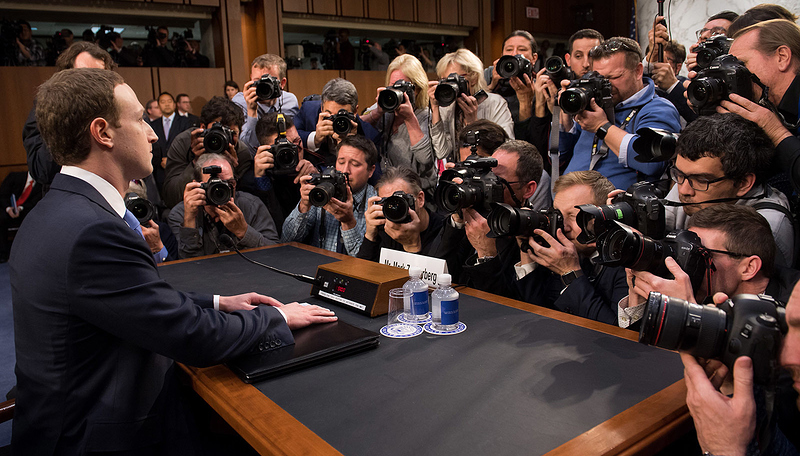In the wake of Mark Zuckerberg’s testimony to the US Congress about Cambridge Analytica’s shady use of Facebook user data, Jennifer Cobbe examines the startling power of internet mega-corporations for the New York Review Daily. Labeling companies like Facebook and Google “surveillance corporations,” Cobbe shows how these corporations know a staggering amount about us and use this information in troubling ways that most of us are unaware of, and that would be considered scandalous in the pre-internet age. Here’s an excerpt from the piece:
Zuckerberg’s testimony to Congress this week has made a few things clear. One is that Facebook is in denial about the extent to which its users are aware of what it is doing. While Zuckerberg says that most users know about and are comfortable with Facebook’s surveillance activities, research shows that a majority of its users would not consent to many of these practices. Another is that, to justify its business model, Facebook appears to feel the need to argue that its users prefer targeted advertising, despite research showing that 41 percent preferred traditional advertising, compared to just 21 percent who like targeting (and overall, 63 percent would prefer to see less targeted advertising altogether on Facebook). And we now know that there were tens of thousands of apps that had access to large volumes of user data before 2015, in the same way as Cambridge Analytica, and that Facebook is only now, under the spotlight three years later, attempting to review them.
Ultimately, neither Facebook, nor Google, nor any other surveillance corporation can reform itself in any meaningful way so long as they are addicted to our data. And Facebook’s latest raft of patents provide little comfort. Surveillance capitalism is often presented as though it’s the natural order of things online, but it is the product of choices made by people in pursuit of profit. As a business model, it is neither inevitable nor unalterable.
Image: Facebook CEO Mark Zuckerberg testifies before a US Senate panel in Washington, DC, April 2018. Via NYR Daily.
